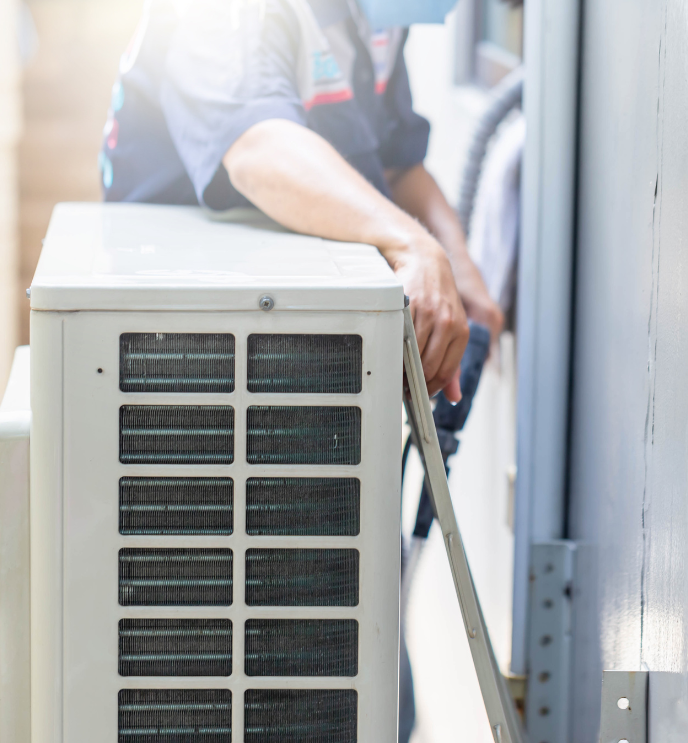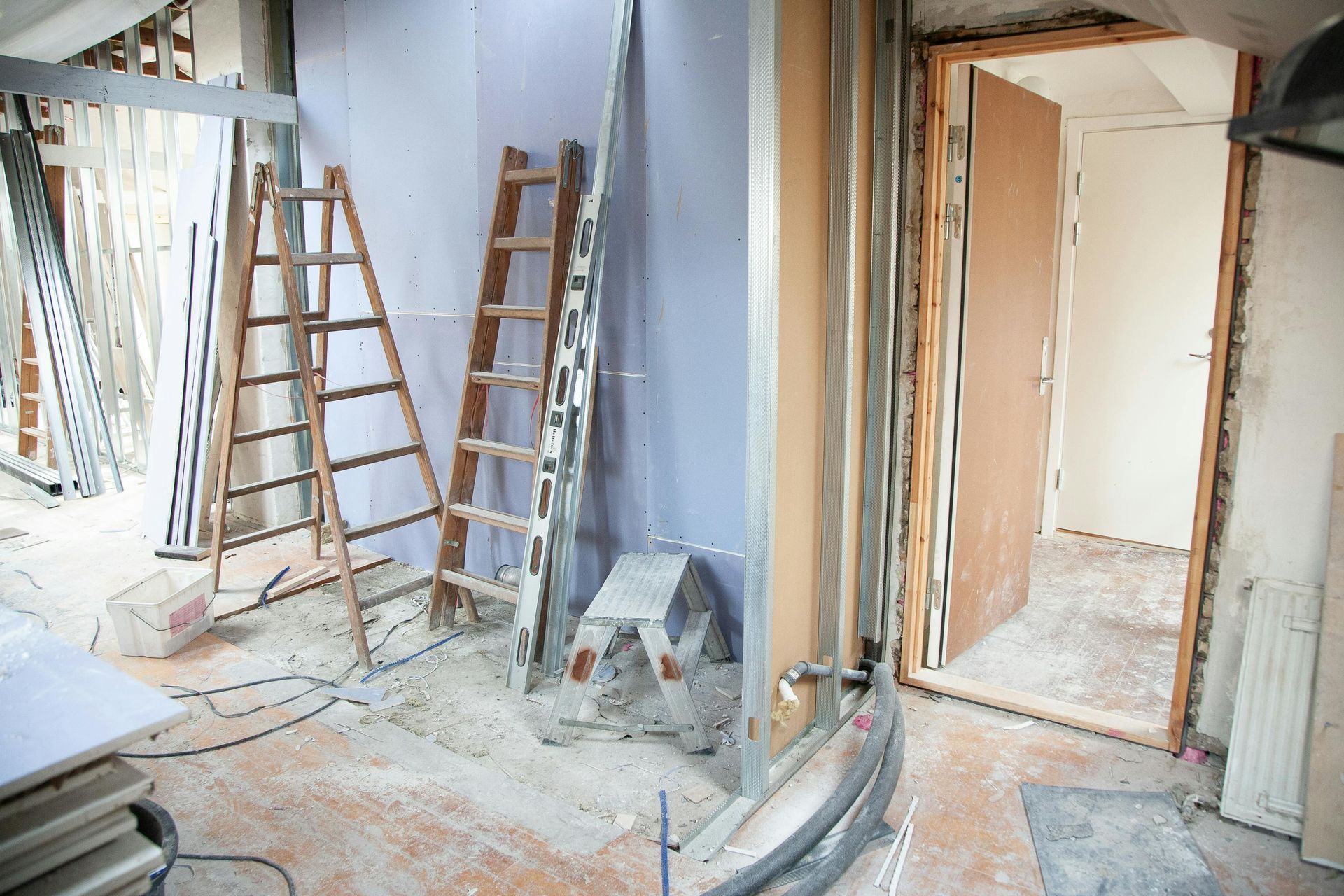Types of Contractors We Serve
Jonathan Behr
Owner of Contractor Insurance Pros by Behr Insurance Services
Index
Contact Us
Phone
Location
Simi Valley, CA 93065
The Woodlands, TX 77382
Katy, TX 77494
In the world of residential HVAC (Heating, Ventilation, and Air Conditioning) contracting, ensuring the safety of both the business and its clients is paramount. One of the most critical aspects of this is having the
right insurance coverage. This article delves into the various types of insurance that HVAC contractors should consider, the importance of each, and how they can protect a business from unforeseen circumstances.
Understanding the Importance of Insurance for HVAC Contractors
HVAC contractors face a unique set of risks that can lead to significant financial losses. From property damage to liability claims, the potential pitfalls are numerous. Insurance serves as a safety net, providing financial protection and peace of mind.
Moreover, many clients require proof of insurance before hiring a contractor. This not only protects the client but also enhances the contractor's credibility in a competitive market. Having adequate insurance coverage can be a deciding factor for homeowners when selecting an HVAC service provider.
Types of Insurance Coverage
There are several types of insurance coverage that HVAC contractors should consider. Each type addresses specific risks associated with the industry, ensuring comprehensive protection.
General Liability Insurance
General liability insurance is perhaps the most critical type of coverage for HVAC contractors. It protects against claims of bodily injury, property damage, and personal injury that may occur during the course of business operations. For instance, if a contractor accidentally damages a client's property while installing a new air conditioning unit, general liability insurance can cover the costs associated with repairs.
This type of insurance not only safeguards the contractor’s finances but also builds trust with clients. Homeowners are more likely to hire a contractor who can demonstrate financial responsibility and the ability to handle unexpected incidents. Furthermore, having this insurance can also facilitate smoother interactions with suppliers and subcontractors, as it indicates a level of professionalism and preparedness that can lead to better business relationships.
Workers' Compensation Insurance
For HVAC contractors with employees, workers' compensation insurance is essential. This coverage provides benefits to employees who suffer work-related injuries or illnesses. It covers medical expenses, rehabilitation costs, and lost wages, ensuring that workers are taken care of while they recover.
Additionally, workers' compensation insurance protects the contractor from lawsuits related to workplace injuries. Without this coverage, a contractor could face significant legal expenses and potential damages if an employee is injured on the job. In an industry where physical labor is a daily requirement, ensuring the safety and well-being of employees not only fosters a positive work environment but also enhances overall productivity. Investing in workers' compensation can lead to lower turnover rates and a more dedicated workforce, as employees feel valued and secure in their roles.
Commercial Auto Insurance
HVAC contractors often rely on vehicles to transport equipment and personnel to job sites. Commercial auto insurance covers vehicles used for business purposes, protecting against accidents, theft, and damage. This type of insurance is crucial, as personal auto insurance policies typically do not cover business-related incidents.
Having commercial auto insurance not only protects the contractor's assets but also ensures compliance with legal requirements. In many states, businesses are required to carry specific levels of auto insurance for vehicles used in their operations. Additionally, this coverage can extend to protect against liabilities that may arise from accidents involving company vehicles, thereby shielding the contractor from potential financial ruin. The peace of mind that comes with knowing that both the vehicle and the driver are protected allows contractors to focus on their work without the constant worry of unforeseen incidents on the road.

While the primary types of insurance provide a solid foundation, HVAC contractors may also want to consider additional coverage options to further protect their business.
Professional Liability Insurance
Professional liability insurance, also known as errors and omissions insurance, protects contractors against claims of negligence or inadequate work. If a client alleges that an HVAC system was improperly installed or that the contractor failed to meet industry standards, this insurance can cover legal fees and settlements.
This type of coverage is particularly important for contractors who provide design or consulting services in addition to installation. It helps safeguard against the financial repercussions of mistakes that could lead to costly repairs or system failures. Furthermore, as the HVAC industry evolves with new technologies and regulations, the potential for miscommunication or misunderstanding with clients also increases. Having this insurance not only provides peace of mind but also reinforces a contractor's professionalism and commitment to quality service.
Equipment and Tools Insurance
HVAC contractors rely heavily on specialized tools and equipment. Equipment and tools insurance protects against theft, loss, or damage to these essential assets. Whether it's a high-end HVAC unit or basic hand tools, having this coverage ensures that contractors can quickly replace their equipment and minimize downtime.
In a field where time is money, being able to replace lost or damaged tools swiftly can make a significant difference in maintaining a business's profitability. Additionally, this insurance can cover the costs associated with renting replacement equipment during the downtime, allowing contractors to meet project deadlines and maintain client satisfaction. As technology advances, the value of HVAC tools and equipment continues to rise, making this coverage not just a safety net but a crucial component of a contractor's operational strategy.
Business Interruption Insurance
business interruption insurance is designed to cover lost income and operating expenses if a contractor is unable to conduct business due to a covered event, such as a natural disaster or fire. This insurance can help maintain financial stability during unexpected disruptions, allowing the contractor to focus on recovery rather than financial strain.
In the HVAC industry, where seasonal demand can fluctuate, having business interruption insurance can be a lifesaver. It ensures that contractors can continue to pay their bills and support their employees even when business slows down. Moreover, this coverage can also extend to include expenses related to relocating operations temporarily or implementing alternative business strategies during recovery. By securing this insurance, HVAC contractors can better navigate the uncertainties of their industry and emerge stronger after unforeseen challenges.
How to Choose the Right Insurance Provider
Choosing the right insurance provider is just as important as selecting the right coverage. With numerous options available, HVAC contractors should consider several factors to ensure they are making an informed decision.
Assessing Coverage Options
Before selecting an insurance provider, contractors should thoroughly assess their coverage needs. This involves evaluating the specific risks associated with their business operations and determining which types of insurance are necessary. A comprehensive risk assessment can help identify potential gaps in coverage and ensure that all bases are covered.
Contractors should also consider the limits of coverage offered by different providers. It's essential to choose a policy that provides adequate protection without leaving the contractor exposed to significant financial risks. For instance, general liability insurance is crucial for protecting against third-party claims, while professional liability insurance can safeguard against claims of negligence or inadequate work. Understanding the nuances of these coverage types can significantly impact the contractor's financial stability in the event of an unforeseen incident.
Evaluating Provider Reputation
The reputation of an insurance provider plays a crucial role in the decision-making process. Contractors should research potential providers, looking for reviews and ratings from other customers. A provider with a strong track record of customer service and claims handling is likely to offer a more positive experience.
Additionally, contractors can seek recommendations from industry peers or professional associations. Networking within the HVAC community can provide valuable insights into which insurance providers are trusted and reliable. Attending industry conferences or local trade shows can also be an excellent opportunity to meet representatives from various insurance companies, allowing contractors to ask questions directly and gauge the responsiveness and expertise of the provider's staff.
Understanding Policy Terms and Conditions
Before committing to an insurance policy, it is vital to carefully read and understand the terms and conditions. This includes being aware of any exclusions, deductibles, and coverage limits. Contractors should not hesitate to ask questions or seek clarification on any aspects of the policy that are unclear.
Understanding the fine print can prevent unpleasant surprises when filing a claim. A knowledgeable insurance agent can help navigate the complexities of policy language and ensure that contractors are fully informed about their coverage. Furthermore, it may be beneficial to review the claims process outlined in the policy, as knowing how to file a claim efficiently can save valuable time and reduce stress during critical moments. Contractors should also consider whether the provider offers online tools or resources for managing their policy, as this can enhance convenience and accessibility in times of need.

The Cost of HVAC Contractor Insurance
The cost of insurance for HVAC contractors can vary widely based on several factors, including the size of the business, the types of coverage selected, and the contractor’s claims history. Understanding these factors can help contractors budget for their insurance needs effectively. Additionally, as the HVAC industry continues to evolve with new technologies and regulations, staying informed about insurance options is crucial for financial stability and compliance.
Factors Influencing Insurance Premiums
Several key factors influence the premiums that HVAC contractors will pay for their insurance coverage. These include:
- Business Size: Larger businesses with more employees and greater revenue may face higher premiums due to increased risk exposure. Conversely, smaller contractors may benefit from lower rates, but they must ensure they have adequate coverage to protect their assets.
- Coverage Type: The more comprehensive the coverage, the higher the premium. Contractors should balance their coverage needs with their budget. For instance, specialized coverage for equipment breakdown or professional liability can add to costs but may be essential for safeguarding against specific risks.
- Claims History: Contractors with a history of frequent claims may see higher premiums, as insurers view them as higher risk. A proactive approach to risk management, including regular training and safety audits, can help mitigate this issue.
- Location: The geographical area where the business operates can also impact premiums. Areas prone to natural disasters or high crime rates may result in higher costs. Understanding local risks can help contractors choose appropriate coverage and prepare for potential challenges.
Ways to Save on Insurance Costs
While insurance is a necessary expense, there are several strategies HVAC contractors can employ to save on costs:
- Bundle Policies: Many insurance providers offer discounts for bundling multiple policies, such as general liability and workers' compensation. This not only saves money but also simplifies management by having a single point of contact for all insurance needs.
- Increase Deductibles: Opting for a higher deductible can lower premium costs. However, contractors should ensure they can afford the deductible in the event of a claim. It's a balancing act between immediate savings and potential future expenses.
- Maintain a Clean Claims Record: By minimizing claims and maintaining a good safety record, contractors can demonstrate lower risk to insurers, potentially lowering premiums. Investing in employee training and safety equipment can further enhance this strategy.
Another effective way to reduce insurance costs is to regularly review and compare insurance policies from different providers. The insurance market can fluctuate, and new companies may offer competitive rates or better coverage options tailored to HVAC contractors. Additionally, staying engaged with industry associations can provide valuable insights into best practices for risk management and insurance procurement. Networking with other contractors can also yield recommendations for reputable insurers who understand the unique challenges faced by HVAC professionals.
Conclusion
In the competitive landscape of residential HVAC contracting, having the right insurance coverage is not just a legal requirement; it is a vital component of a successful business strategy. From protecting against liability claims to safeguarding employees and equipment, insurance provides a safety net that can prevent financial disaster.
By understanding the various types of insurance available, assessing their unique risks, and choosing the right provider, HVAC contractors can ensure they are adequately protected. Investing in comprehensive insurance coverage is an investment in the longevity and stability of the business.
As the HVAC industry continues to evolve, staying informed about insurance options and best practices will empower contractors to navigate challenges effectively, allowing them to focus on what they do best: providing exceptional service to their clients.
Areas we serve









